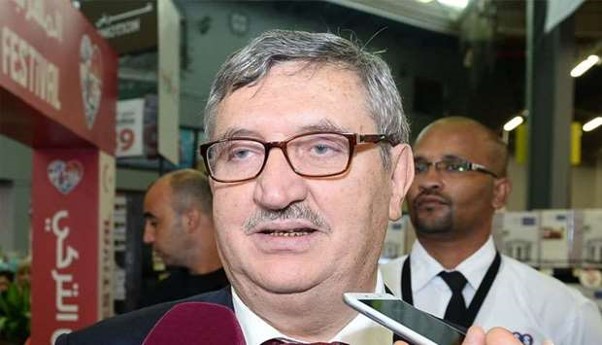Nordic Monitor
Turkey’s ambassador to Qatar, an Islamist and childhood friend of of Turkish President Recep Tayyip Erdoğan, has been a key operative in pursuing clandestine relations between the family of the Turkish president and the Al Thani royal family, a Nordic Monitor investigation has revealed.
In 2017 President Recep Tayyip Erdoğan appointed his close friend and classmate Fikret Özer as ambassador to Qatar, a tiny Gulf nation that has become a close ally and strategic partner of Turkey over the last decade thanks to the policies of Turkey’s Islamist government. Özer attended the İstanbul İmam-Hatip Lisesi, a religious public school, together with Erdoğan in the 1970s.
Özer, who had worked as administrative officer in the foreign ministry since 1979, presented his letter of credence to Qatari Emir Tamim bin Hamad Al Thani on March 17, 2017. Since then, he has coordinated President Erdoğan’s official and private contacts with Qatar’s royal family and been involved in relationships between highly controversial organizations, businessmen and charity groups in Turkey and their Qatari counterparts. He acts more like a personal envoy for Erdoğan than an ambassador who represents the interests of the Turkish state
While the Turkish Foreign Ministry dismissed its qualified career diplomats with no effective judicial or administrative investigation in the aftermath of a coup attempt on July 15, 2016, Özer, known as a less-than skilled diplomat, became the first administrative officer in the Turkish foreign service to have been offered an ambassadorial post. According to Turkish diplomatic tradition, admin officers manage property, finances and human resources in embassies and serve as consular officers at some diplomatic missions.

As part of his secret mandate, Özer cultivated relations with Muslim Brotherhood representatives and several radical Islamist figures based in Qatar. In addition to Yusuf al-Qaradawi, the spiritual leader of the brotherhood, Ambassador Özer has met with the former leader of Hamas, Khaled Mashaal, during his time in Doha. Pro-Erdoğan cleric al-Qaradawi, who endorsed suicide bombings and armed rebellion in Syria and Iraq, has been banned from entering the United States since 1999 and from the United Kingdom since 2008. Al-Qaradawi regularly appears on Al Jazeera and has advocated a violent jihad across the region.

Furthermore, Ambassador Özer provided support to Turkey’s Foundation for Human Rights and Freedoms and Humanitarian Relief (IHH) in order to maintain its partnership with Qatar Charity. The IHH is known as a tool of Turkish intelligence agency MIT and has been under investigation by the Turkish police. It was accused of smuggling arms to al-Qaeda-affiliated jihadists in Syria and Libya.
The Turkish police investigated the IHH’s links to Qatar Charity, but President Erdoğan halted the case in 2014. These police officers were later dismissed and the investigation was hushed up. Prior to the investigation in Turkey, Qatar Charity had already been accused by US prosecutors of serving as a major financial conduit for funding the al-Qaeda attacks against the US embassies in Kenya and Tanzania in 1998, and it was noted that Osama bin Laden allegedly used Qatar Charity to fund al-Qaeda’s activities in the 1990s. Moreover, French intelligence stated in 2013 that Qatar Charity was involved in funding a group in Mali connected with al-Qaeda. Looking at the track record of both Qatar Charity and the IHH, there seems to be a perfect match as they both fund militant groups.

Before his most recent appointment, Özer was promoted to Turkish consul general in the Saudi city of Jeddah to gain some experience for the next step in Doha. According to recordings caught in police wiretaps in 2013, the then-EU Affairs Minister Egemen Bağış told Reza Zarrab, an Iranian money launderer, that Özer was engaged in selling Turkish citizenship to Afghan residents of Saudi Arabia for $100,000 during his posting in Jeddah.
Bağış was one of four ministers forced to resign on December 25, 2013 after the revelation of two corruption investigations on December 17 and 25, 2013 in which the inner circle of then-Prime Minister Erdoğan were implicated. He was accused of accepting bribes from Zarrab in a sanctions-busting scheme run through Turkish state-owned Halkbank to circumvent US sanctions on Iran. He received $1.5 million from Zarrab. Bağış also helped Zarrab evade the bureaucracy in his dealings and assisted Zarrab’s father in acquiring a Schengen visa from the Italian Embassy in Ankara.
During Erdogan’s last visit to Doha in November 2019, the two sides signed seven cooperation accords and agreed that Qatar would help finance the return of Syrian refugees to a Turkish-controlled “safe zone” in northern Syria.
Turkey set up a military base in Qatar as part of an agreement signed in 2014, and in 2015 Qatar and Turkey established the Supreme Strategic Committee to enhance their relationship. In that context, the first Turkish troops were deployed to Qatar in 2015. Qatar sought Turkey’s security and military assistance after a boycott was imposed by Saudi Arabia, Egypt, the United Arab Emirates and Bahrain in June 2017. Turkey beefed up its presence at the base, which has the capacity to accommodate 3,000 troops, in December 2017.
Qatar’s investments in Turkey total more than $20 billion, the second highest level of investment by any country in Turkey. In August 2018 Sheikh Al Thani pledged to invest $15 billion in Turkey, which was collapsing as the lira plunged in value against the dollar due to tensions between Ankara and Washington. Qatar’s emir also presented his Boeing 747-8, worth an estimated $400 million, to the Turkish president as a symbol of “Thani’s special love for Erdoğan,” according to Turkey’s state-run broadcaster TRT.












